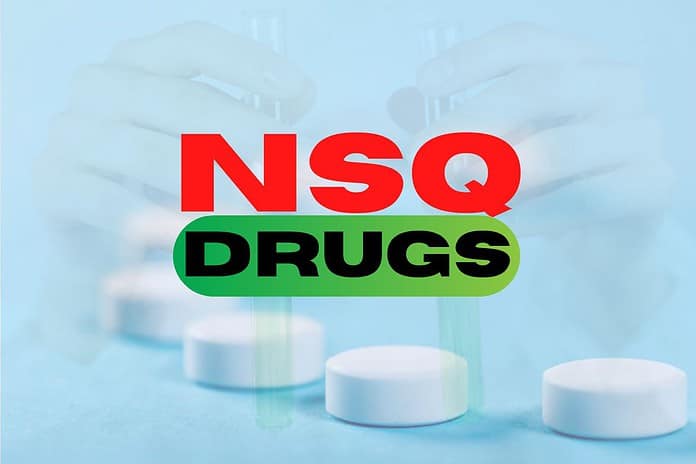Last Updated on October 6, 2024 by The Health Master
Factors to Consider for Drug Regulator
The drug regulator plays a critical role in ensuring the quality of pharmaceutical products in the market.
However, a senior industry leader, Dr Rajesh Gupta, All India Head with Laghu Udyog Bharti Pharmaceutical Committee and State President of Himachal Drug Manufacturers Associations, Baddi, has pointed out the importance of considering various factors before finalizing the list of Not of Standard Quality (NSQ) drug samples.
This comprehensive evaluation is necessary to improve the drug alert process and provide a fair chance to the pharmaceutical industry.
The leader emphasizes the need to address issues such as geographic and climatic conditions, storage challenges, and the involvement of other stakeholders in maintaining quality standards.
This article delves into the specific points raised by the industry leader and highlights the significance of these considerations.
Factors Influencing NSQ Drugs:
The senior industry leader stresses the importance of a holistic approach when assessing NSQ drugs.
Some key factors that should be taken into account include:
Evaluating Drug Failure:
The drug regulator should examine the various factors contributing to the failure of drugs during sample tests conducted by pharmaceutical companies.
By understanding the root causes, the regulator can provide accurate information about NSQ drugs.
Transparency in Reporting:
While the drug alert list provides details of NSQ products, it currently only mentions the number of products that pass the quality test.
The industry leader advocates for the inclusion of a list of products that successfully pass the Standard Quality test, creating confidence among manufacturers and the public.
Geographic and Climatic Considerations:
India’s diverse geography and climatic conditions significantly affect the stability of pharmaceutical products.
The industry leader highlights the challenges posed by varying temperature and humidity levels during transportation and storage.
These factors can impact the quality of drug samples and should be taken into account during evaluations.
Role of Stakeholders:
The responsibility for maintaining proper storage conditions extends beyond the manufacturer.
Wholesalers and retailers must also ensure appropriate storage facilities to preserve the quality of pharmaceutical products.
Addressing storage conditions in the retail and wholesale sectors is crucial in preventing quality issues.
Natural Calamities and Disasters:
Situations such as floods and other natural calamities prevalent in many parts of the country throughout the year must be considered.
If drug consignments are affected by these events, it is unfair to solely blame the manufacturer for any resulting quality issues.
Enhancing the Drug Alert Process:
To improve the drug alert process, the industry leader suggests the following measures:
Comprehensive Data Collection:
When drawing drug samples from retailers or wholesalers, the regulator should record storage conditions, including the day temperature of the location.
Additionally, instead of solely testing and publicizing NSQ details, the licensing conditions of wholesalers and retailers should also be examined.
Addressing Manufacturer Concerns:
Manufacturers often challenge NSQ reports, and their samples are subsequently approved by the Central Drugs Laboratory.
However, the alert list is not corrected accordingly. Ensuring fair representation and rectification of such cases is vital for maintaining transparency.
Accurate Sample Representation:
It is essential to mention the number of samples drawn from a particular state during a specific sample collection.
This information provides context and clarifies whether a high number of NSQ samples is indicative of a larger sample size.
Conclusion:
The pharmaceutical industry in India faces various challenges in ensuring the quality of drugs.
By considering the factors mentioned above, the drug regulator can enhance the drug alert process, provide a fair chance to manufacturers, and instill confidence in the public.
Additionally, with the amendment of the Drugs & Cosmetics Act, it is hoped that justice will be served to genuine manufacturers while spurious and unlicensed products will face severe penalties.
The industry’s efforts to educate its workforce and prioritize stability and quality standards in drug manufacturing further contribute to addressing these pressing issues.
Licensing procedure for manufacturing of Drugs
Procedure to obtain license for manufacturing of Cosmetics
Procedure to obtain license for manufacturing of Homoeopathic Medicines
Procedure to obtain license for manufacturing of Medical Devices
Procedure to obtain License to Manufacture drugs for testing and analysis purposes
Procedure to obtain license for Commercial Testing Laboratories
USFDA gives approval for OTC Acetaminophen and Ibuprofen Tablets
Pharma company penalised Rs 45 lakh for pollution
NABL: Awareness on accreditation for Drugs and Pharma Testing Laboratories
USFDA declines to approve this Parkinson’s drug
USFDA gives tentative nod for Dolutegravir tablets for oral suspension
USFDA issues Form 483 with one observation to Gland Pharma: Hyderabad
USFDA approves 1st OTC Daily Oral Contraceptive
Drug recall: Dronabinol Capsules, Ziprasidone HCL Capsules recalled due to this reason
Pharma Companies challenge Govt’s Ban on Pre-1988 FDCs
India Pharma Industry is leading market for USFDA Authorizations








